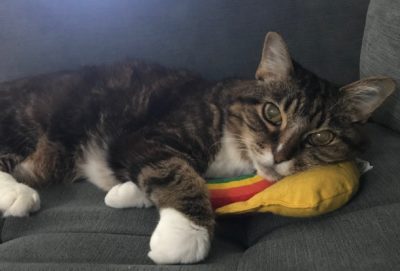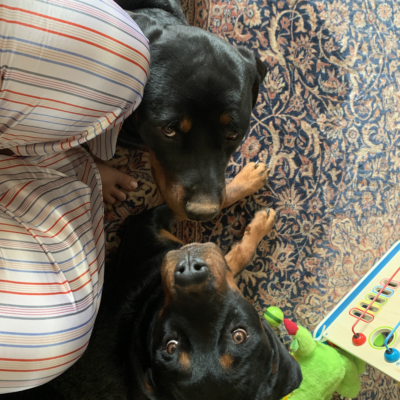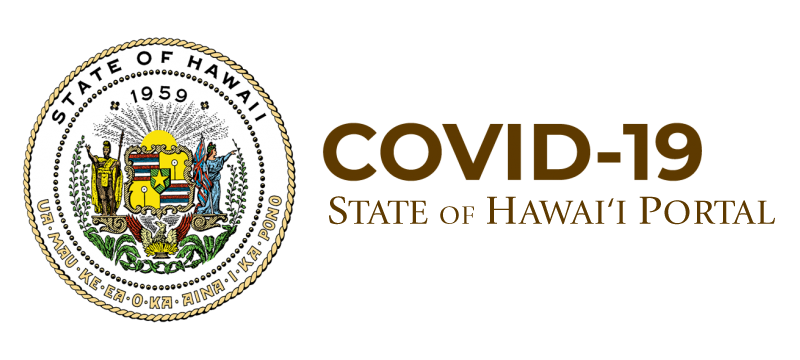We love our animals in Hawai‘i. We treat our pets like family and our farm animals with respect.
Unfortunately, just like humans, animals can contract COVID-19.
The virus is believed to have started in an animal at an open market in China, spread to humans and then spread between people, according to the Mayo Clinic.
The virus that causes coronavirus disease mostly spreads from person to person, but it can also spread from people to animals.
 According to the Centers for Disease Control and Prevention (CDC), pets — including cats and dogs — have been infected with the virus that causes COVID-19. This usually happens after the animals are in close contact with people infected with the COVID-19 virus.
According to the Centers for Disease Control and Prevention (CDC), pets — including cats and dogs — have been infected with the virus that causes COVID-19. This usually happens after the animals are in close contact with people infected with the COVID-19 virus.
State Veterinarian, Dr. Isaac Maeda, with the Hawai‘i Department of Agriculture, said that as a precaution, people infected with COVID-19 should not have close contact with their cats and dogs.
“This is to minimize the chance their animal will get infected,” Maeda said. “There have been no confirmed cases of COVID in pets
reported in Hawai‘i.”
However, Maeda said Honolulu Zoo lions Ekundu and Moxy both tested positive for COVID last fall. Ekundu died about a week after he started having respiratory problems. Moxy did not get sick and has made a full recovery.
Maeda said no specific SARS CoV-2 testing is being done for dogs, cats, or livestock.

State Veterinarian, Dr. Isaac Maeda
“It can be required for certain cases such as primates,” he said. “Those imports have to receive approval from the Board of Agriculture through DOA’s Plant Quarantine Branch (PQB). Animal Industry (AI), our division, collaborates with PQB in setting health requirements (such as testing) for these exotic animals.”
Routine testing of pets for COVID-19 is not recommended at this time, according to the U.S. Food and Drug Administration. Based on the limited information available to date, the risk of pets spreading the virus is considered low.
If your veterinarian thinks your pet is a candidate for testing, they will consult the state veterinarian and public health officials.
The FDA says the virus that causes COVID-19 has been reported in minks on farms in several countries, including the United States. Once the virus is introduced on a farm, spread can occur between mink as well as from mink to other animals on the farm (dogs, cats). Because some workers on these farms had COVID-19, it is likely that infected farm workers were the initial source of mink infections.

The Mayo Clinic advises that if you have COVID-19 and have a pet:
- Isolate yourself from everyone and your pets. If possible, have another person in your household care for your pet.
- Avoid petting, snuggling, and sharing food or bedding with your pet.
- If you care for your pet or are around animals while you’re sick, wear a face mask. Wash your hands before and after handling animals and their food, waste, and supplies.
If you have COVID-19 and your pet becomes sick, don’t take your pet to the veterinarian yourself. Instead, contact the veterinarian. He or she might offer advice through a virtual visit or make another plan for treating your pet.
If you have questions or concerns about your pet’s health and COVID-19, contact your veterinarian.
Denby Fawcett: Why So Few People Are Getting The New Covid Shot
Experts are worried about the lack of interest as people are still suffering from the virus and long Covid. By Denby Fawcett Original article on Civil Beat, November 7, 2023 I keep a card in my [...]
Federal Public Health Emergency (PHE) for COVID-19 ends on May 11, 2023
HONOLULU, HI –The federal Public Health Emergency (PHE) for COVID-19, declared under Section 319 of the Public Health Service Act, will expire at the end of the day on May 11, 2023. As the PHE [...]
Seniors now eligible for additional COVID-19 bivalent booster dose, COVID vaccine recommendations simplified
HONOLULU, HI – The Hawai‘i Department of Health (DOH) supports the latest recommendations announced yesterday by the Centers for Disease Control and Prevention (CDC), allowing an additional dose of the bivalent booster against the virus [...]
Hawai‘i COVID-19 hospitalizations on the rise
HONOLULU, HI – The Hawai‘i Department of Health (DOH) reports a rise in the rate of COVID-19 hospitalizations. The number of total positive COVID-19 hospitalizations has increased over the past week (3/26 – 4/4) from [...]
Wastewater Samples Show Higher COVID Concentrations & New Subvariant
The Hawai‘i State Department of Health’s most recent Wastewater Surveillance Report documents two significant developments about COVID-19 in Hawai‛i. Higher concentrations of the virus that causes COVID-19 The arrival of the XBB.1.5 subvariant Higher concentrations [...]
Bivalent boosters for keiki as young as 6 months
Updated COVID-19 bivalent boosters are now available in all counties for keiki as young as six months of age. The U.S. Food and Drug Administration (FDA) amended the emergency use authorization for the bivalent boosters [...]
